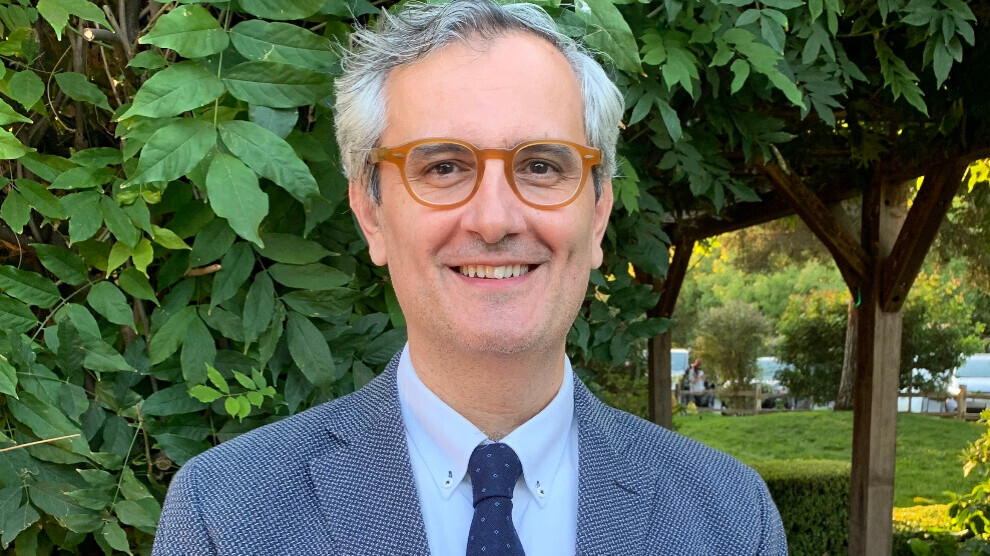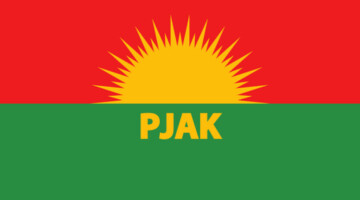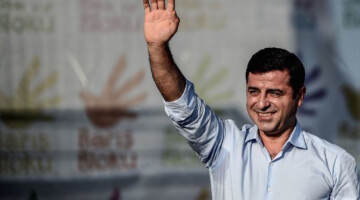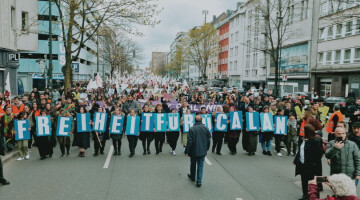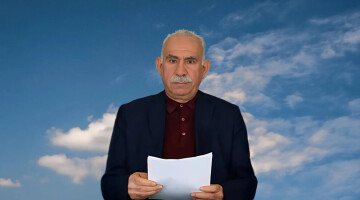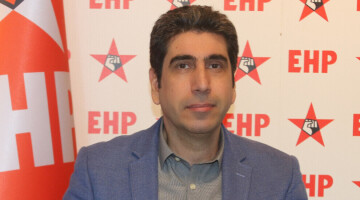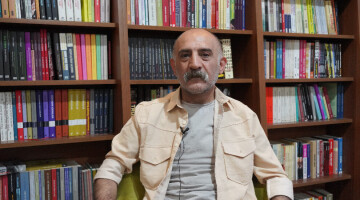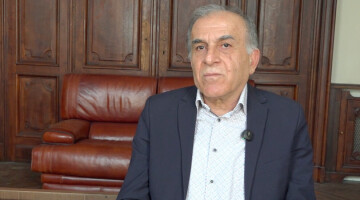Stating that Kurdish phobia has become a nightmare for Turkish Islamist elites, Dr. Nikos Michailidis said that this 'Kurdophobia' turned into 'democracyphobia' and destroyed the social fabric and the country.
Anthropologist Dr. Nikos Michailidis is a lecturer at the Stanley J. Seeger '52 Center for Hellenic Studies and the Department of Anthropology.
Born in Thessaloniki, Michailidis studied political science and international relations in Athens. He completed his master's degree at Istanbul Boğaziçi University. His areas of interest include political anthropology, Hellenic cultural heritage in the Eastern Mediterranean, art and politics, social transformation, collective memory, material culture and change, people and technology. He works on Greece, US and Turkey.
He is working on the first draft of a book that examines the socio-political implications of the reconstruction and revival of listening to Pontian lyra (Pontic fiddle) music.
A Pontian lyra (Pontic fiddle) artist who firmly believes in the power of art to bring cross-cultural awareness and positive social change, Dr. Michailidis is also involved in a number of music projects in Greece, Turkey, the USA and Canada.
Dr. Nikos Michailidis answered ANF's questions.
Club TV series in Turkey is being discussed these days. The Wealth tax in 1942 is also on the agenda thanks to that series. Since you are an anthropologist, I want to ask this question. What happened to the minorities in Istanbul? Does the Turkish state continue this policy against minorities? How much is the risk that the property of the Kurds will be confiscated as the property of minorities has been confiscated?
Let me start by saying that the Turkish state has been working systematically for decades since its establishment to seize the Kurdish language, which is the most important property of the Kurds. When the Kurds started to react to this cultural appropriation, they started to lose their villages and material assets. I don't even know how many Kurdish villages have been destroyed by the Turkish army, acting like an occupying force in Kurdistan. This confiscation policy has been going on since at least 1923. This is nothing new.
As for the Christian communities of Anatolia, we all know how the Young Turks committed a crime against humanity and committed genocide against those communities (Greeks, Armenians, Assyrians). After physically destroying them, they confiscated their property and cultural heritage. Churches turned into mosques and horse stables are just a small example. Remember also the different ethnic music genres embraced by the Kemalist regime and transformed into "Turkish folk music". We all know how the Greeks of Constantinople were expelled from the country after the pogroms. This state continues to persecute non-Turkish and non-Sunni indigenous groups. The Turkish regime is a confiscation regime.
Let's take a look at the Turkey-Greece relations. An important point in these relations is Turkey's occupation of Cyprus. After the occupation, a significant number of Turkish settlers were brought to the island. The MHP-AKP intervened in the elections in Northern Cyprus and supported their own candidates. What kind of process awaits Cyprus?
Turkey is acting like a colonial power in Cyprus, that's the truth. It is Ankara's custom to use Muslim communities abroad to destabilize other countries and interfere in their internal affairs. They did this elsewhere. It is clear that Turkey wants to legitimize its invasion. This will never be accepted by anyone. I want to be clear about this. This occupation must end, and I think it will end very soon. If Turkey does not comply with international law and does not withdraw the occupation forces from Cyprus, the problem will continue and Turkey will pay a serious price. The era has changed in the region and in the world. Turkey can no longer play the role of the spoiled gendarme of some Western powers in the Middle East. The Republic of Cyprus is developing multilateral relations with local and international players to help it survive the illegal Turkish military occupation. Cyprus is becoming a crucial energy hub for European and global markets. Turkey will either act rationally and lawfully or stay out of the region.
Turkey's expansionist policy continues in North-East Syria and Southern Kurdistan as well as in Cyprus and the Eastern Mediterranean. What is Turkey trying to do?
Turkey invaded Rojava to stop Kurdish autonomy and even independence in the region. Ankara does not want to see a second, legitimate and recognized autonomous Kurdish administration in Syria this time. I think Kurdish phobia has become a nightmare for Turkish Islamist elites, and this 'Kurdophobia' turns into 'democracyphobia', destroying the social fabric and the country. Ankara is using jihadist gangs to attack and destroy Kurdish autonomy in Rojava, this is a well-known fact. Turkey is a failed state that is in constant crisis. It has no future unless it completely changes its institutions, constitution, political culture and is completely decentralized. Nobody wants Turkey to expand its territory against all its neighbours, and nobody will allow it. Sooner or later, Turkey will have to start negotiations with the Kurdish Movement and Abdullah Öcalan himself in order to stop this expansionist nonsense and find a just solution to the Turkish-Kurdish problem. Anything else would be a complete suicide for Turkey.
Turkey lost the geopolitical importance it had during the cold war period, causing Ankara to go unpunished for whatever crimes it committed against the Kurds and other citizens. I am very optimistic that a new world has emerged in our region and I believe that the Kurds will take their rightful place in this new architecture.
The last question is about US-Greek relations. In recent years, alliance relations have been developing. Recently, the two countries also held joint exercises together. How do you interpret the developments in the relations between Greece and the USA?
The relations between Greece and the US are very strong and are constantly expanding in all areas. Greece is becoming more important to US security design. Athens is becoming an element of stability, a kind of security provider in the region. The United States will benefit from the growing influence and power of Greece.

